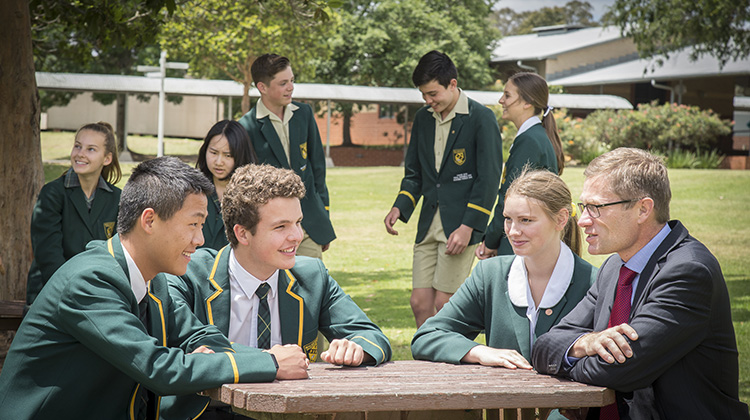Children can develop resilience at school with the right challenges and support

Macarthur Anglican School puts a strong focus on developing resilience in its students by introducing them to appropriate challenges with support from teachers.
Macarthur’s Dean of Students, Tim Cartwright, says that resilience is about facing tough things and developing an ability to push through them. “Until children do those harder things, they don’t realise their potential. It’s like a muscle that needs to be strengthened by hard work.
“We encourage our students to get involved in programs like the Duke of Edinburgh Award. For many students, this could involve their first hike with a heavy backpack. The first response to the challenge might be “this is too hard”, but with a teacher to guide them, they learn that their mental strength can carry them through, which is part of personal development.
“The practice of some parents of wrapping children in ‘cotton wool’ is leading to less resilience in young people. Closeting children from perceived potential harm can run the risk of not exposing children to any difficult situations at all,” added Mr Cartwright.
“Resilience doesn’t have to stem from trauma, it can grow from a supportive environment. At Macarthur, our teachers have a crucial role to play in helping a child become competent, caring and have a sense of community. Academic and pastoral care are bound together. Academics will blossom if pastoral care is good,” he added.
Resilience is not taught as a stand-alone subject at Macarthur Anglican School; instead, it is woven into many aspects of school life.
Like most independent schools, Macarthur Anglican School is divided into Houses, each of which has a ‘Head of House’ who is responsible for the school’s pastoral care program. There are 30 minutes timetabled each day to focus on non-academic areas.
Venessa Allen, who is also a PDHPE teacher, is the Head of Johnson House and the driving force behind the use of a resilience-building tool called The Resilience Doughnut.
“The Resilience Doughnut helps children and adolescents identify and combine their strengths to build resilience. It’s a great conversation starter. In my role as Head of House, I’m the first point of contact with students and parents who want to raise an issue, particularly around mental health.
“I have worked with a student who lacked self-confidence and suffered from anxiety. Together we used the Resilience Doughnut tool to focus on three key factors – education, skill, and money. As we talked, we uncovered the special talent she has for making hair scrunchies. We worked together to develop a way she could make the scrunchies and sell them to her fellow students. It took her outside her comfort zone but made her realise she had a special talent and could utilise it. She was also really proud when she saw other students wearing them,” said Mrs Allen.
Macarthur Anglican School also integrates resilience training within the PDHPE curriculum. The school recently used an outside provider to come and speak to the students about the key topics of masculinity and consent in an age-appropriate way.
Additionally, there’s a program called Bounce Back, which is incorporated into the curriculum for Years 3 to 6.
The peer support program that Macarthur runs for Year 11 students to work with Year 7 students is also part of the resilience teaching. Small groups meet weekly for peer mentoring.
Every Year 10 student attends a yearly one-day conference called Stand Tall with guest speakers sharing their experiences on a range of topics, including resilience. Those topics are then followed up in the classroom.
“Our focus is on leading students through tough things in a guided and managed way to prepare them for an ever-changing world,” concluded Mr Cartwright.